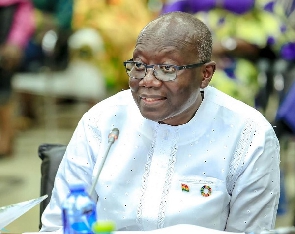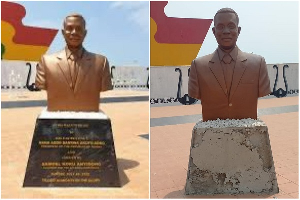Government says a total of GH¢82.99 billion in principal was tendered and accepted at the close of the Domestic Debt Exchange Programme (DDEP) on Friday, February 2023.
The approximately, GH¢83 billion, it said was a substantial majority of the bonds that eligible holders had tendered and would support the Government to implement its measures to take Ghana out of the current economic crisis.
The government, through the Finance Ministry, in a release issued to the Ghana News Agency on Tuesday, said: “This result is a significant achievement for the Government to implement fully, the economic strategies in the post-COVID-19 Programme for Economic Growth (PC-PEG) during this current economic crisis.”
It extended the settlement date of the exchange from the previously announced February 14, 2023 to February 21, 2023, to provide sufficient time to settle the new bonds in an efficient manner.
“This Settlement Date extension is, however, only to process the settlement of the New Bonds. The issue date, interest accrual schedules and payment schedules for the New Bonds will be adjusted to reflect the actual Settlement Date,” the statement said.
It added that: “As the Exchange period has expired, no new tenders will be accepted, and no revocations or withdrawals are permitted.”
Amid recent concerns by individual bondholders especially pensioners, who have calling for their exemption from the programme, the Government, assured all bondholders that it would honour all coupon payments and maturing principals when due.
“We would like to stress that, all Individual bondholders, especially our Senior Citizens, should rest assured that their coupon payments and maturing principals, like all Government bonds, will be honoured in line with Government’s Fiscal commitments,” the Government said.
It added that: “The government would like to reassure all individual bondholders who elected not to participate that your coupon payments and maturing principals, like all government bonds, will be honoured in line with government fiscal commitments.”
The government emphasised that the DDEP had been executed to help protect the economy and enhance Ghana’s capacity to service its public debts effectively, as its debt had become unsustainable.
It said it was grateful to bondholders for the overwhelming participation, adding that their support and contributions had gotten Ghana much closer to securing the IMF programme.
Ghana needed about 80 per cent participation in its DDEP to give assurance of its creditors’ support to make its debt sustainable as it seeks a $3 billion loan-support programme with the International Monetary Fund (IMF).
In December last year, Ghana and IMF reached a Staff-Level Agreement (SLA) on economic policies and reforms to be supported by a new three-year arrangement under the Extended Credit Facility (ECF) of about US$3 billion.
The SLA was subject to IMF Management and Executive Board approval and receipt of the necessary financing assurances by Ghana’s partners and creditors, hence, the Government’s launch of the DDEP.
When secured, the loan-support programme would be implemented in line with the Government’s Enhanced Domestic Programme (EDP) – a 3-year fast-tracked macroeconomic stabilisation programme, which is to restore investor confidence and achieve fiscal and debt sustainability.
The programme would be driven by a mix of robust structural reforms and revenue, expenditure, and financing policies to further enhance economic recovery and transformation efforts under the Ghana COVID-19 Alleviation and Revitalisation of Enterprises Support (Ghana CARES) programme.
Business News of Tuesday, 14 February 2023
Source: GNA

















